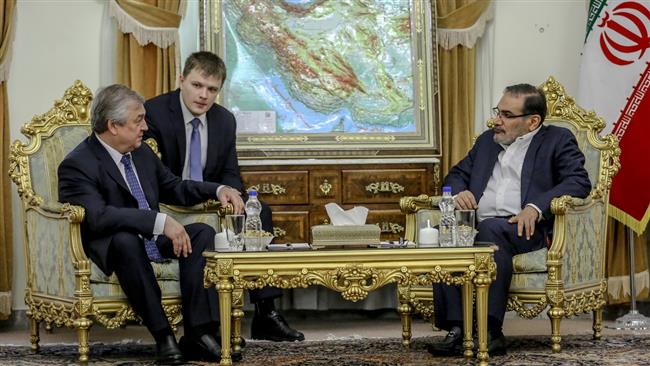Mystery hovers over discussions on Saturday in Tehran between Russian and Iranian officials about Syria’s conflict.
Iranian media cover the visit of Alexander Lavrentiev, Moscow’s envoy on Syria, to the head of Iran’s Supreme National Security Council, Ali Shamkhani. However, the summaries are vague about the political and battlefield issues, such as last week’s Geneva talks, the US-Russia “de-escalation zone” which has come into force in southwest Syria, and the future of Syrian ruler Bashar al-Assad
Instead, Shamkhani headlines with an emphasis on Israel:
The Zionist regime forms deep and extensive bonds with terrorist groups and their sponsors and seeks to make use of these groups as an instrument to allegedly secure Israel’s borders and to continue with the suppression of the oppressed Palestinian people.
Shamkhani’s statement could be a coded challenge to the de-escalation zone, which is adjacent to the Israeli-occupied Golan Heights. Israel has insisted — notably in talks between Prime Minister Benjamin Netanyahu and Russian leader Vladimir Putin since Moscow’s military intervention in September 2015 — that Iranian and Iranian-supported forces such as Hezbollah be kept out of the area.
Shamkhani also appeared to express concern that Russia is willing to accept a de facto partition of Syria, leaving part of the country under opposition control. He asserted that “national sovereignty” must be respected, “Any agreement must not undermine this unchangeable principle or prepare the ground for Syria’s breakup.”
Iranian reports offer no clue to Lavrentiev’s response, offering only the template statement that “Iran, Russia, and Syria are playing a leading and determining role in the genuine fight against terrorism”.
Russia’s English-language outlets ignore the meeting.

